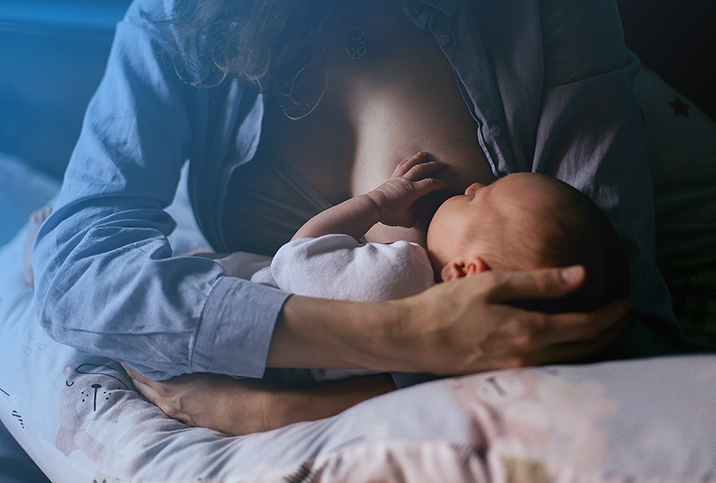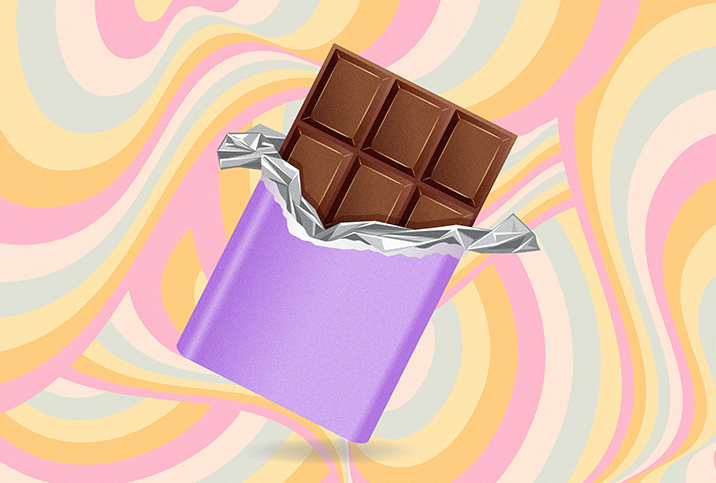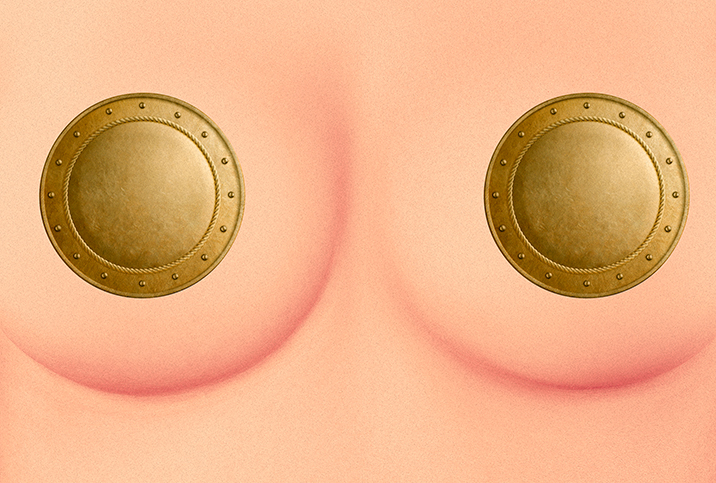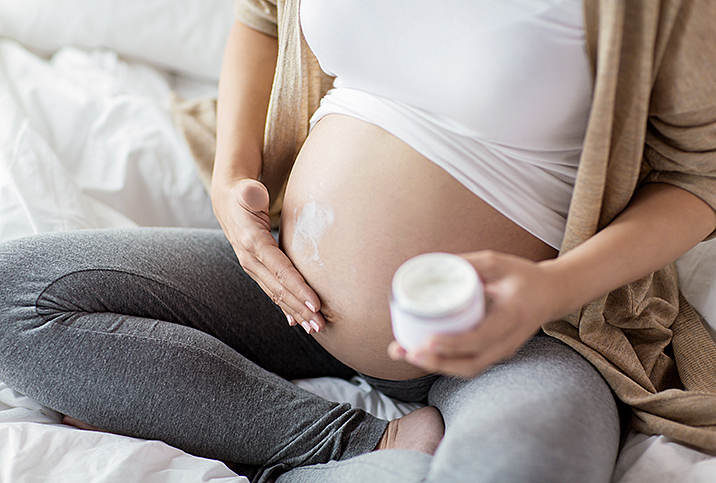Ouch! Why Am I Cramping While Breastfeeding?

While many health professionals may speak to expectant parents about breastfeeding, the cramps that occur after birth can come as a surprise in the early days of nursing a newborn.
Cramping while breastfeeding or pumping breastmilk can go by different names, including uterine cramps or afterbirth pains.
What does a cramp while breastfeeding feel like?
Jessica Madden, M.D., an international board-certified lactation consultant, board-certified pediatrician and neonatologist in Cleveland as well as medical director at Aeroflow Breastpumps, explained the sensation of cramps while nursing.
"[They] can feel like a cross between menstrual cramps and labor pains. For some, symptoms are mild, and others experience severe discomfort every time they nurse," she said.
Madden said most breastfeeding parents experience these cramps to some degree, and that they usually get stronger with subsequent pregnancies.
Abrie McCoy, a board-certified lactation consultant in North Carolina who works with SimpliFed, added that some new parents don't feel cramping while breastfeeding at all.
She explained that after your baby is born, the uterus starts contracting again in order to get back to its normal size, a process known as "involution." Much like labor, the chemical at work is oxytocin (the "love hormone"). This explains why breastfeeding seems to fuel these pains, as oxytocin rises during this time and the shrinking feeling increases.
McCoy stressed that these pains are a positive aspect of your postpartum health.
"This contracting is also beneficial because it narrows the blood vessels in your uterus, reducing the risk of hemorrhage," she said.
Hemorrhage is defined as blood loss of 500 milliliters (mL) or more for a vaginal birth or 1,000 mL or more for a C-section in the first 24 hours after delivery. If you have any concerns about bleeding after birth, contact your healthcare provider as soon as possible, because it can be an indicator that something is wrong.
How long should breastfeeding cramps last?
Madden emphasized that these cramps don't last very long.
"Nursing cramps usually occur for the first few minutes of breastfeeding and pumping sessions for one to two weeks after giving birth," she explained.
It typically takes the uterus six weeks to go back to its pre-pregnancy size, according to Morgan Michalowski, of New York City, a certified nurse midwife, women's health nurse practitioner and board-certified lactation consultant at Clue, a period tracking app.
Some bleeding (alongside the pains themselves) during the first weeks of nursing is one of the signs of an active oxytocin reflex, so it can be a positive sign for anyone who wants to breastfeed successfully.
The United Kingdom's National Childbirth Trust (NCT) states that postpartum bleeding can last for up to 12 weeks after birth.
Sam Ferris, a Tampa, Florida, lawyer with a 6-year-old, was "shocked" by her nursing pains because she wasn't expecting them at all. After speaking with her midwife, however, she managed the pain by taking ibuprofen.
The uterine contractions went away after two and a half weeks, but she also noticed that her "stomach looked flatter and felt firmer, so the contractions obviously worked to start putting everything back into place."
How can you ease pumping or nursing cramps?
Cramps while breastfeeding or pumping usually resolve themselves after a few minutes of nursing or pumping, Madden explained. For people experiencing a higher degree of pain, McCoy recommended a warm compress and continued rest as well as checking in with your doctor about what medication you can take.
Michalowski said the common over-the-counter painkillers ibuprofen and acetaminophen are safe to take. There is also an online database called LactMed, which is run by the U.S. National Library of Medicine and provides information about drug safety while breastfeeding.
Researchers also found using a TENS (transcutaneous electrical nerve stimulation) machine is an effective, drug-free way to manage your pain, in much the same way it can be used during labor.
A study on uterine cramping after birth concluded that "management of pain after birth is important, as the pain can affect a mother carrying out her normal activities as well as bonding with and caring for her baby." It added that these pains also have the potential to disrupt breastfeeding.
The bottom line
If you have any heavy bleeding or pain that is significantly worse than discomfort, Michalowski recommended alerting your healthcare provider to make sure there is nothing else going on.
Looking after your postpartum health is just as important as taking care of your new baby. If you are concerned about your pumping or breastfeeding cramping, speak to your doctor.


















